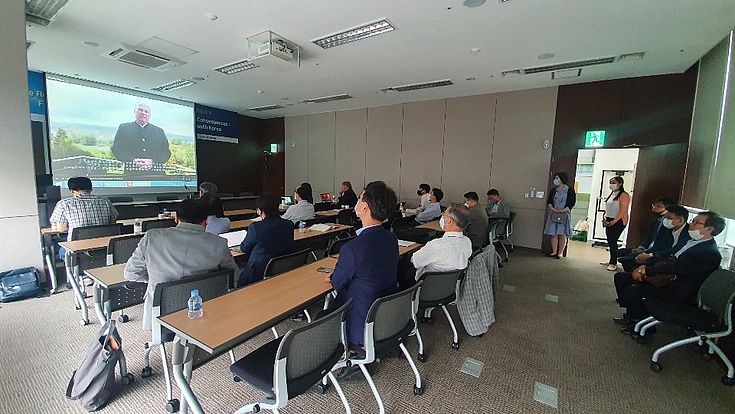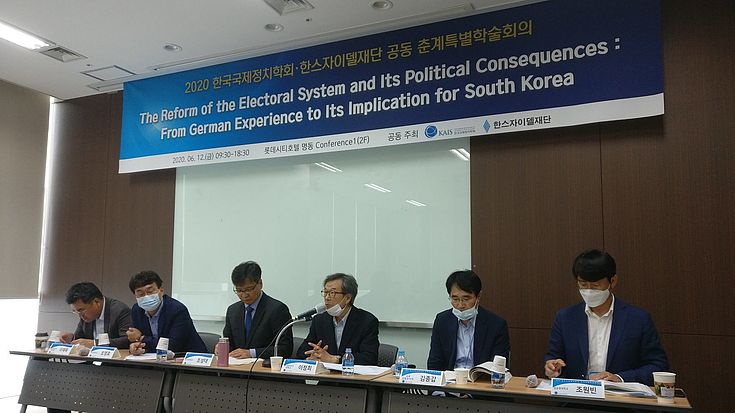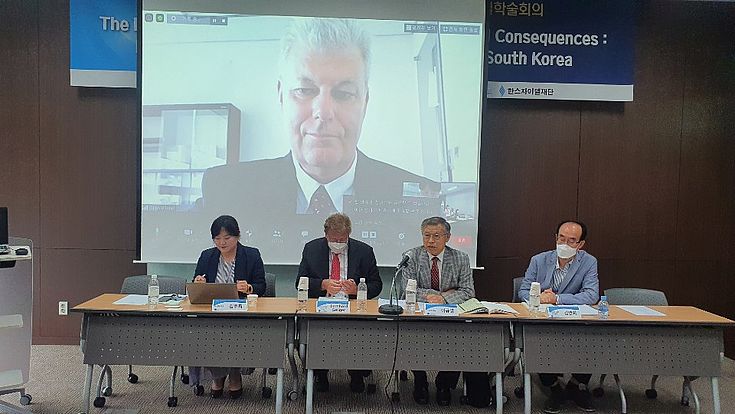Conference
Reform of the Electoral System

Elections are in any democracy important times, but there are few countries, where they tend to be so dramatic like in Korea. Here, the division of North and South, the history of democratization in South Korea and the quest for stability, but also fairness in elections often lead to fierce and sometimes tumultuous discussions and campaigns. The election for the 21st National Assembly on April 15 for the first time saw a new electoral system called “semi-mixed member proportional representative system”, which should shift the election further from a clearly majority-voting dominated system to a more proportional representation system.

However, the emergence of “satellite parties” basically reversed that intention by making the two majority groups, Democratic Party, and United Future Party, even stronger. In this situation, the joint conference of the Korean Association of International Studies (KAIS) and Hanns-Seidel-Foundation Korea looked at ways to reform the electoral process, by comparing Korean and German experiences. Prof. Lee Sang-Hwan, President of KAIS, could welcome around 50 members of the association “offline”, but the proceedings were made available to all 2000 members through streaming.

The first session, moderated by Prof. Jun-Ho Won of Hankyong National University, who is also member of the Presidential Commission on Policy Planning, discussed the satellite party system emerging from the new election law. Prof. Hyung-Chul Kim of Sungkonghoe University and Prof. Shin-Goo Kang of Ajou University did presentations, and Prof. Sung-Jin Yoo of Ewha Womans´University, Prof. Han-Soo Lee of Ajou University and Dr. Hyeon-Seok Park of KAIST were discussant.

The second panel took a comparative view on the German and Korean system and was moderated by Prof. Lee Chung-Hee of Hankuk University of Foreign Studies. Dr. Jong-Kap Kim of the Korean National Assembly Research Services compared electoral reform in Germany and South Korea. Prof. Sung-Dai Cho of Hanshin University looked into the manipulation through strategic split-voting in the 2020 National Assembly election. Their papers were discussed by Prof. Cho Wonbin of Sungkonghoe University, Prof. Jae-Mook Lee of Hankuk University of Foreign Studies and Prof. Cho Young-Ho of Sogang University.

Afterwards, two keynote speeches were given by Cheol-hee Rhee, member of the 20th National Assembly of Korea, and Hartmut Koschyk, member of the German Bundestag (Parliament) from 1990 to 2017 and currently co-chairman of the German-Korean Forum. The third and last session, moderated by Prof. Kyu-Young Lee of Sogang University, looked into current debates on the German electoral system. Prof. Ralph Wrobel of the Westsaxon University of Applied Sciences and Dong-A University, Busan, discussed the crisis of German electoral systems with the example of the election of the prime minister of Thuringia in 2020. Dr. Bernhard Seliger took a longer-term view on issues of stability and instability in the German parliamentary system. Their papers were discussed by Prof. Kim Yeon-Hoe of Hankuk University of Foreign Studies as well as Prof. Kim Joo-Hee of Pusan-Kyongbook National University.
Clearly, a single conference can not change the electoral system. But the engaged and spirited discussions showed that electoral reform will remain on the agenda in Korea for the time to come.
You can follow the speech of Hartmut Koschyk (in German language) at:
You can find more information of the KAIS here: www.kaisnet.or.kr
